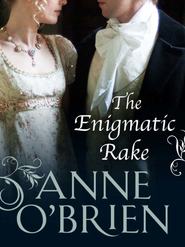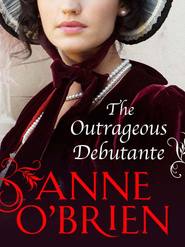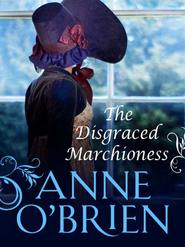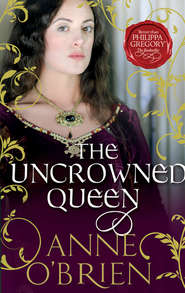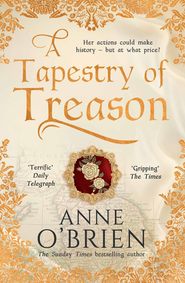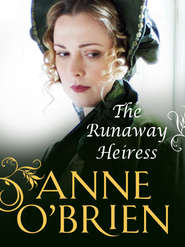По всем вопросам обращайтесь на: info@litportal.ru
(©) 2003-2025.
✖
Regency High Society Vol 6: The Enigmatic Rake / The Lord And The Mystery Lady / The Wagering Widow / An Unconventional Widow
Настройки чтения
Размер шрифта
Высота строк
Поля
‘It will not be a respectable establishment, Sarah! That will be the problem! And although I hate to admit it, my brother appears to have abandoned all honour and principles expected of a gentleman. To have the Countess of Wexford living with him under the same roof. It is quite disgraceful. I am sure that you take my meaning. I hesitate to say this about my own brother, but you may not be safe in such a household.’
Sarah did understand, all too clearly, but knew with a lowering of spirits that her friend’s concern was not necessary. In a perverse manner, she almost found herself wishing that it was, that she was sufficiently beautiful and desirable to attract the attentions of a notorious rake. There was never any hope of that—not even when she was a young girl. When she looked in her mirror, she accepted what she saw there. Her fair curls did not have the brightness, her blue eyes lacked intensity, her pale skin would have benefited from a hint of delicate colour. No. Sarah Russell would never take the eye of Lord Joshua Faringdon. So she expressed her sentiments with a wry smile and typical honesty. ‘Judith…Lord Faringdon is hardly likely to look at me, now is he? Particularly if an attractive woman such as the Countess is more than willing to accommodate his advances. I am not beautiful. I have no talent or skill beyond the average with which to attract his attention. He will see me as the housekeeper, a servant below stairs. Which is exactly what I shall be. That is if he notices me at all! And if the Countess of Wexford moves on to hunt in other pastures, as you put it, there will always be the ladies of Covent Garden to claim your brother’s attention.’ She silenced Judith’s objections with a little shake of her head. ‘His conduct in the house will have no influence on my life whatsoever. He can have any number of mistresses. He can hold orgies if he wishes. It is simply that this position is too advantageous for me to reject!’
Chapter Three
Within the week, before she could weaken and change her mind, Sarah saw to the packing up of her few possessions and those of her son, and their transportation over the short distance to Lord Joshua Faringdon’s town house in Hanover Square. She herself followed immediately. Hugged and kissed by Judith, they shed a few tears because, although the Countess of Painscastle promised to come and see her friend, and was lavish in invitations that Sarah should bring herself and John to visit in Grosvenor Square any time she wished, both were well aware of the social divide that Sarah was creating by her wilful decision. But go she would. As she stood on the shallow flight of steps leading to the imposing front door, flanked by decorative ironwork, John’s hand clasped firmly in hers, she wondered what the future would hold for her here, whether she would ever find the acceptance and depth of happiness that she yearned for. But for now she would settle for satisfaction in her new position and a sense of redemption.
Sarah discovered other members of the new household already in occupation and hard at work. The house, elegant and spacious with well-proportioned rooms and tasteful furnishings, had been closed up for more than a year, furniture shrouded in dust sheets and shutters closed. Newly appointed footmen and maids were already cleaning and organising under the strict eye of Judith’s butler Matthews, who had been sent to cast his experienced eye over the proceedings. For the moment, Sarah was pleased to leave the reins in his capable hands.
Sarah first took herself to the kitchen and sculleries to discover and make the acquaintance of the ruler of this little kingdom. Mrs Beddows was a small, thin, nervy woman who had already organised her domain to her exacting standards. Fortunately she appeared not to mind a small boy and sat him down at the scrubbed table, with strict instructions for him not to get under her feet, to drink a glass of milk whilst she cross-examined his mama. After half an hour, Sarah found herself in possession of detailed knowledge of every maid and footman under her authority and decided that she and Mrs Beddows would get along.
Instinct warned her that it would be a different tale with the new butler. Mr Alfred Millington, he informed her within condescending tones and a smooth smile. Former butler at Orford Place to the Marquis and Marchioness of Gainsford. Sarah did not like him. And why was he no longer engaged at Orford Place? Opinionated and superior, conscious of his own elevated status as butler in a gentleman’s establishment, he looked down his thin nose at her. And he made it plain that he did not like small boys. Sarah adopted a cool professional smile and determined to try hard to get on with this individual—she did not desire to make enemies unnecessarily—but he would bear watching. The rest of the new servants were still nameless faces. It would all fall into place eventually.
The house gradually began to come to life as dust and covers were removed. Oriental silk curtains and hangings were brushed and washed and fires were lit in cold rooms. It was sparsely furnished as yet, but perhaps his lordship would do something to remedy that if he planned to remain in London for any length of time. Sarah walked round her new responsibility, enjoying the stillness and order that they were creating, at the same time trying to absorb some sense of the absent owner. There was nothing. No personal possessions, no atmosphere of anyone having lived here. Even the paintings on the walls were impersonal, mostly dark rural scenes or lurid representations of Greek myths in heavily ornate frames. The family portraits, although clearly of Faringdons with their dark hair and well-marked brows, were from a distant age when the sitters wore whalebone stays and lace cravats. Even a farthingale was in evidence. Nothing to indicate the character or the preferences of Lord Joshua Faringdon. It was as if he had never lived here and Sarah, standing within the splendour of the polished wood and the leather-bound books in the library, had to admit to a disappointment. Judith’s brother interested her, despite his wicked ways. Foolish without doubt but she could not deny it.
The rooms set aside for her own use, high under the eaves, had traditionally been used as nursery and schoolroom, but were surprisingly spacious. A small private sitting room and bedchamber for herself, a smaller room for her son and then the schoolroom. Lacking the elegance and comfort of the family rooms of course, but not unacceptable. Beyond it were two rooms cleaned and prepared for the imminent arrival of Miss Celestine Faringdon. She inspected them all with John in tow.
‘Do we live here now, Mama?’ He bounced on the bed that would be his own.
‘Yes. Will you like it?’ She ran a finger along the edge of a small table to check for dust.
He thought for a moment. ‘Yes. Mrs Beddows gave me a sugared biscuit. She said that when Lord Faringdon comes there will be horses in the stable and I can go and see them.’
‘I expect she is right.’ Sarah smiled. Horses were her son’s present passion.
‘Has the little girl come yet?’ John dashed before her into the schoolroom. ‘From the country?’
No.’ Celestine was expected any day. ‘We must try to make her welcome. She will not know anyone in London. Think what it must be like, if everyone is a stranger.’
Opening a cupboard and finding it empty, shutting it again, John came to stand beside Sarah, suddenly anxious. ‘Will you be her mama as well?’
‘No.’ She ruffled his hair, which made him jump out of reach with a squawk. ‘I shall teach her—and you, both of you together. Her papa will soon be here.’
‘Where is her mama? Is she still in France?’ Sarah raised her brows at this evidence that her son listened in to the conversations around him. He was beginning to grow up. It surprised her that she felt a little sad at the prospect.
‘No. Her mama is dead.’
‘Like my papa.’ John pushed a pile of books neatly together, simple acceptance in his voice.
‘Yes. Like your papa.’ Sarah felt a sudden rush of loneliness to meld with the sadness. Then took herself to task. This was no good. She would soon be sinking in a fit of melancholia! They now had everything she had dreamed of. A home and a paid position that would allow them to live dependent on no one for charity. She had still to hear what her sister Thea might have to say to this change in her circumstances. As horrified as Judith and far more outspoken, if Sarah knew anything about it. But she did not care. Self-esteem was a very important thing, and, whatever Judith might say to the contrary, the need to make recompense to the family she had almost helped to destroy. The whole episode had left a stain, ugly and hauntingly persistent, on her soul. But now she nodded as she watched John climb on to the window seat to peer down into the Square, laughing excitedly at his height from the ground and the sudden swooping proximity of a flock of sparrows. Yes. She had done the right thing. She held out her hand to John.
‘Let us go and look at Celestine’s room, and see that it has been made ready for her.’
For better or worse, she was now a housekeeper.
* * *
Meanwhile, in Paris Lord Joshua Faringdon was making his own preparations to transfer his life to London, in the company, as advised by Wycliffe, of the Countess of Wexford. It would have surprised his sister beyond measure to know that her brother found the highly decorative lady to be everything that Judith had described to Sarah. Possessor of a beautiful face, an elegant figure, a range of talents that made her much sought after in some social circles for her undoubted charm, her outer beauty hid a grasping and selfish soul. The smiling lips and glittering eyes, the low provocative voice, were knowing and could be sly. They also masked an utter determination to achieve what would be in the best interests of Olivia Wexford. Her dead husband, Lord Joshua considered, sent to an early grave by a fall from a horse when hunting in the Shires, had had a lucky escape.
But without doubt the lady had her uses. Lord Joshua Faringdon would be seen and condemned by all as an unprincipled dilettante, returning to London in the midst of a scandal of the worst possible kind, in the company of his present mistress. Not only a lady of dubious morals, but one who was prepared to live openly with him under his own roof in Hanover Square. The ton could make of that what they would—and he could imagine every whispered aside. But nothing could be better in covering up his underground activities or the true reason for his return. No one would find a need to look beyond the obvious.
At the same time, he realised, as he sat at his desk to put his paperwork in order, he need feel no guilt over the masquerade. Olivia had been highly delighted to be invited to accompany him to London and made no attempt to hide it. The delicacy of his invitation had been lost on her. He might be little less than crippled with his broken ribs and damaged tendons, but Olivia smiled into his eyes and offered her lips for a kiss. Blatantly offered far more than that when he could manage to climb the stairs to her room without the use of a cane, when he was capable of pleasuring her body with finesse and some physical dexterity. She would like nothing better than to be his mistress and would enjoy ruling over his establishment in London, notwithstanding the resulting gossip. She might even hold out for marriage if she thought it worth her while to become Lady Joshua Faringdon. He stopped to think about that, his hands stilled on a pile of documents, a line engraved between his brows. She was without doubt an attractive woman. And he was not averse to a light flirtation when the object of his gallantry was so willing and responsive.
But no. He frowned at his wayward thoughts and continued to shuffle. His experience with the fair sex had not been felicitous and had left him with a sharp and lingering distrust. A woman’s professed love was conditional on the depth of a man’s purse. Or the value and sparkle of the jewels an unwise man might clasp around her elegant neck. And once she had you in her clutches, her claws would not willingly let go until all blood had been drained, uncomfortably like a leech—his lips twitched in semblance of a smile. Manipulative and untrustworthy. In his mind the image of Marianne was suddenly superimposed over that of Olivia Wexford until he deliberately blinked it away with gritted teeth, smile transformed into a cynical snarl. He would not allow himself to contemplate that episode of marital bliss again. Or willingly repeat it.
No. He would feel no guilt over the fair Olivia’s unwitting role in his return to London. She would get as much out of it as he did. But it struck him forcibly that the greater the distance he could keep between the woman and himself on a personal level the better. Not an easy task but an essential one. For, without doubt, Olivia Wexford had an eye to his body and his bed as well as his guineas.
The days passed, but Celestine Faringdon did not arrive in Hanover Square. No matter how many times John might rush into the entrance hall at the sound of a coach or large vehicle in the street, there was no sign and no letter to explain the delay. Sarah contemplated sending to apply to Judith to discover the whereabouts of the little girl, but decided that she should not. She must learn to accept her new position of service—where the actions of her employers and their family were no concern of hers.
The cleaning and polishing of the house was complete at last, flowers arranged in the reception rooms, the pantries and cellars stocked, all in readiness for the imminent arrival. Then there was nothing for the staff to do but wait on the inclinations of their betters.
So that as chance would have it, when a large and fashionably smart coach and four finally arrived to draw up outside the house early on a bright morning, luggage piled high on the roof, no one within was prepared.
‘Mama! Mama! She is here. The little girl is here.’ John jumped and hopped in excitement by the window flanking the front door. No matter how often Sarah had tried to explain their altered status, or the parts of the house that were out of bound to him—and how difficult that was to a child of nearly six years!—John still saw the new arrival as an object of endless fascination and a possible playmate.
Sarah joined him, grabbing hold of his hand. There was indeed bustle and noise on the pavement. Luggage was being unloaded. But no child emerged from the carriage. She clutched her son’s hand harder.
‘It is not Celestine. It is Lord Faringdon!’
Why had the man not sent word to warn them? Well, why should he? Swallowing against a sudden brush of panic along her spine, Sarah made a hasty dash to the servants’ quarters to gather up and send as many staff as possible to the entrance hall, where they might formally greet their new lord. They lined up just as the front door was flung open by a young and self-conscious footman. Sarah, the last to arrive, took a place at the end of the line, twitching her skirts and cuffs into place, thinking that it really would not do for her to meet her first employer in a state of disorder. Then realised that John was still watching the arrival in a frenzy of excitement. She should have banished him to the kitchens—this was no place for her child—but too late. Quick as a thought, she pulled him to stand beside her.
‘Stand still, John.’ Sarah managed to smile down at him, as nervous as the youngest scullery maid. ‘Don’t speak unless you are spoken to. Silent as a little mouse, mind!’
Eyes wide, John nodded and grasped his mother’s skirts.
Up the flight of shallow steps and into the entrance hall walked a lady. Tall with a slender, willowy figure, she was immediately the centre of attention. A glorious brunette with dark eyes under dark brows and dark lashes that could only have benefited from the careful use of cosmetics. And with a richly painted mouth that smiled, unlike her eyes, which did not. Rather they looked and assessed and discarded with elegant disdain as if used to better things. She took up a position—posed, Sarah decided—just inside the door as if to draw all eyes to herself. There was no difficulty here.
She was dressed, as Sarah supposed, in the height of Parisian fashion in a delectable shade of lavender. Row after row of ribbon and lace trimmed the hem, the same detail drawing the eye to the pleated yoke above the high waist. The sleeves were long and close fitting into pleated cuffs with little puffed oversleeves. The brim of the satin-straw bonnet was trimmed with similar pleating, the crown with flowers and curling feathers, its long satin ribbons fluttering as the lady glided across the tiled floor in matching satin shoes.
Sarah could not prevent a silent sigh of envy, immediately conscious of her own plain gown fashioned of dark blue silk, high necked, long sleeved, not a hint of decoration. As for the lace cap that she had reluctantly pinned to her rigidly controlled curls…all perfectly suited to her standing, demure and understated and of excellent quality. She had never felt quite so dowdy in all her life.
Sarah surveyed the visitor beneath lowered lashes, understanding at once who she must be. The Countess of Wexford, no less. Judith’s barbed comments came instantly to life and Sarah could well believe the truth of them. Her ladyship said not a word, not condescending to notice such lowly creatures as servants. Drawing off the softest of kid gloves with casual grace and perhaps a touch of impatience about her lovely mouth and a faint line between her brows, she surveyed the entrance hall, the rise of the staircase to the first floor, the side tables and hall chairs—almost as if she were looking for dust. Definitely impatience, Sarah realised, as the Countess tapped one foot, then swept her luxurious skirts out of the way to move back to the doorway to look out. But she smiled, her petulance swiftly disguised. Lord Faringdon was now here.
For Sarah, Joshua Sherbourne Faringdon was a far more attractive subject for her conjecture. She repressed a nervous smile as he came to a halt in the doorway, the sun at his back, casting his features into shadow but rimming him in gold. What would he say if he knew that she was a close friend of his sister, a less than discreet and loyal sister who had seen it in her way to pass on all manner of interesting information. But Sarah had no intention of allowing him this knowledge and had warned Judith of her desires. To Lord Faringdon, she would simply be Mrs Sarah Russell, his newly appointed—if most inexperienced—housekeeper.
It was immediately obvious as he approached the doorway that Lord Faringdon had suffered a number of recent and far from trivial injuries. He moved with a slow and agonising stiffness, using a cane to help him mount the steps, holding himself as if his ribs and one shoulder flared with pain with every unwise movement. Perhaps there was a tightness, a hint of strain around his mouth. But that, although she recalled in some moral indignation Judith’s confidences on the cause of the damage, was not what took Mrs Russell’s attention. From the moment that his lordship set foot inside his own hall, when he turned so that the light could fall full on his face, for Sarah the glory of the Countess of Wexford became a matter of irrelevance, as tawdry as pinchbeck beside fine gold.
She recognised the Faringdon features, familiar as they were, immediately. Beautifully carved features, all firm planes and interesting hollows cast into relief by the bright sunlight that shone directly into the room. A thin, imperious nose and firm lips. But here there were arresting differences. Dense black hair she had expected, but not with the lustre of dull silver. And his eyes were neither disturbingly dark gray nor intensely blue. As Judith had so casually informed her, they were light, silver even, devastating as polished metal, clear as cut glass. As piercing as the gaze of a hunting hawk as he cast an eye over his assembled staff. And at this precise moment, Sarah decided, they were full of an intense irritation, although with whom or what she could hardly guess.
For Sarah it was an uncomfortable instant of shock and inner revelation. She took a deep breath as her heart gave one heavy beat, then sighed and tensed against a little flutter of butterfly wings in her stomach, a shiver of longing that spread its warm heat from her breast to the tips of her fingers. A delicate flush mantled her cheeks. Capable, sensible, practical—unworthy—Sarah Russell, who asked nothing more in life than forgiveness for the part she had played in her brother’s malicious plotting, and the chance to carve out a quiet life for herself and her son. Who wanted never to be dependent on the whim of any man ever again. Sarah Russell, who had lived in the same house with both Henry and Nicholas Faringdon, admiring both, acknowledging the charm of both, but without any danger of losing her common sense where they were concerned—or her heart.
And here, in this one blinding moment, her love for John Russell, although it could never be denied, paled into insignificance as the intoxication of longing swam through Sarah’s blood.
Why did it have to happen now? And with this man?
She took herself instantly to task, in typical stern fashion, despite the hectic beat of her pulse at throat and wrist. How foolish she was to allow so immediate a reaction to simply the sight of the man. Of what value was a handsome face if the owner lacked honour and respectability? Of course it was impossible to fall in love so instantly, so completely with someone of whom she had no knowledge, apart from the most damaging of gossip, and who was so far above her as to make the situation patently ridiculous. With a man who had arrived in the intimate company of the Countess of Wexford, who was certainly expecting to take up residence in the house, with no attempt to disguise her relationship with Lord Faringdon. How scandalous indeed! Of course Sarah could not have lost her heart!
But Sarah’s silent lecture did not at all seem to have the desired effect.






